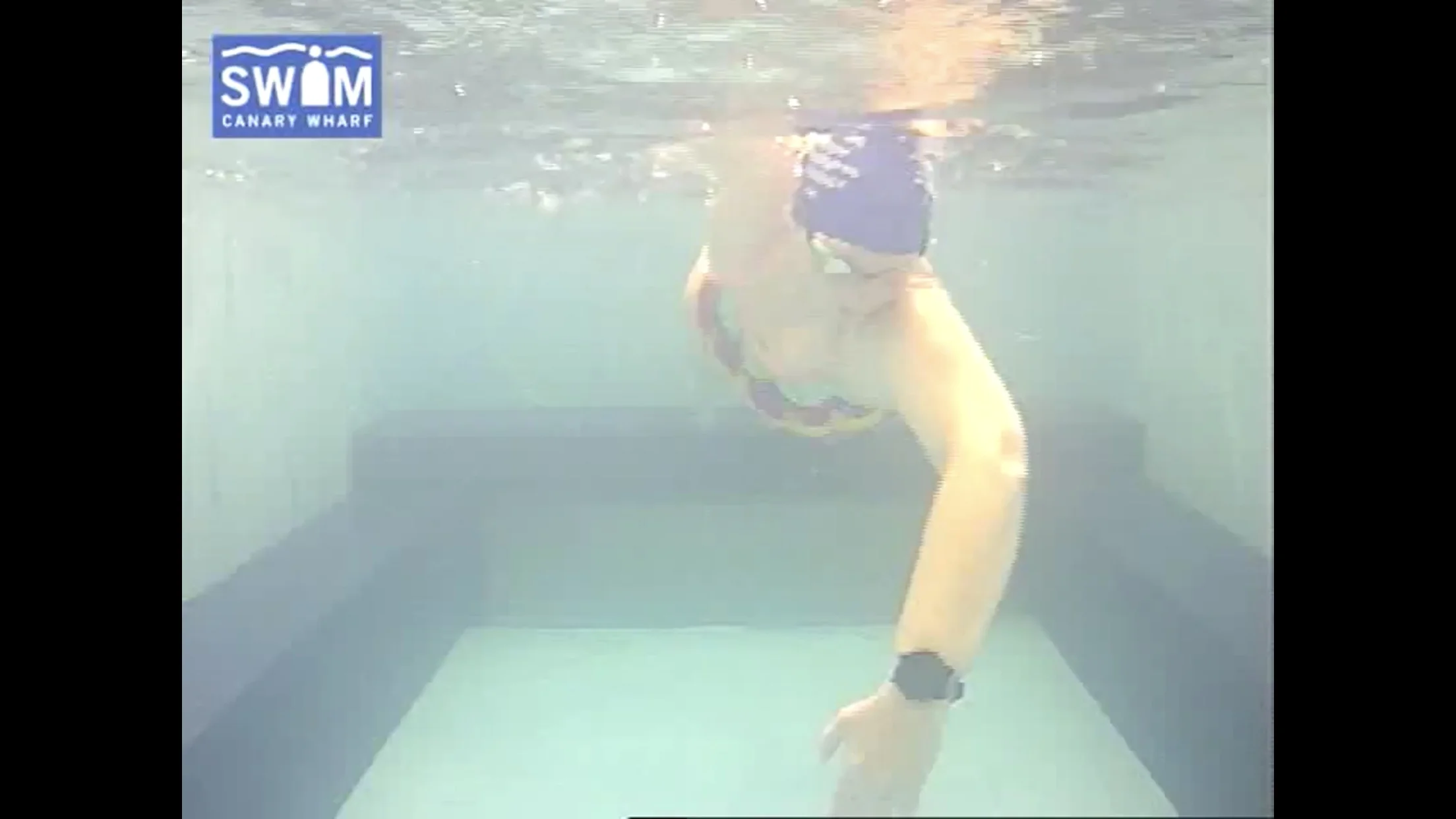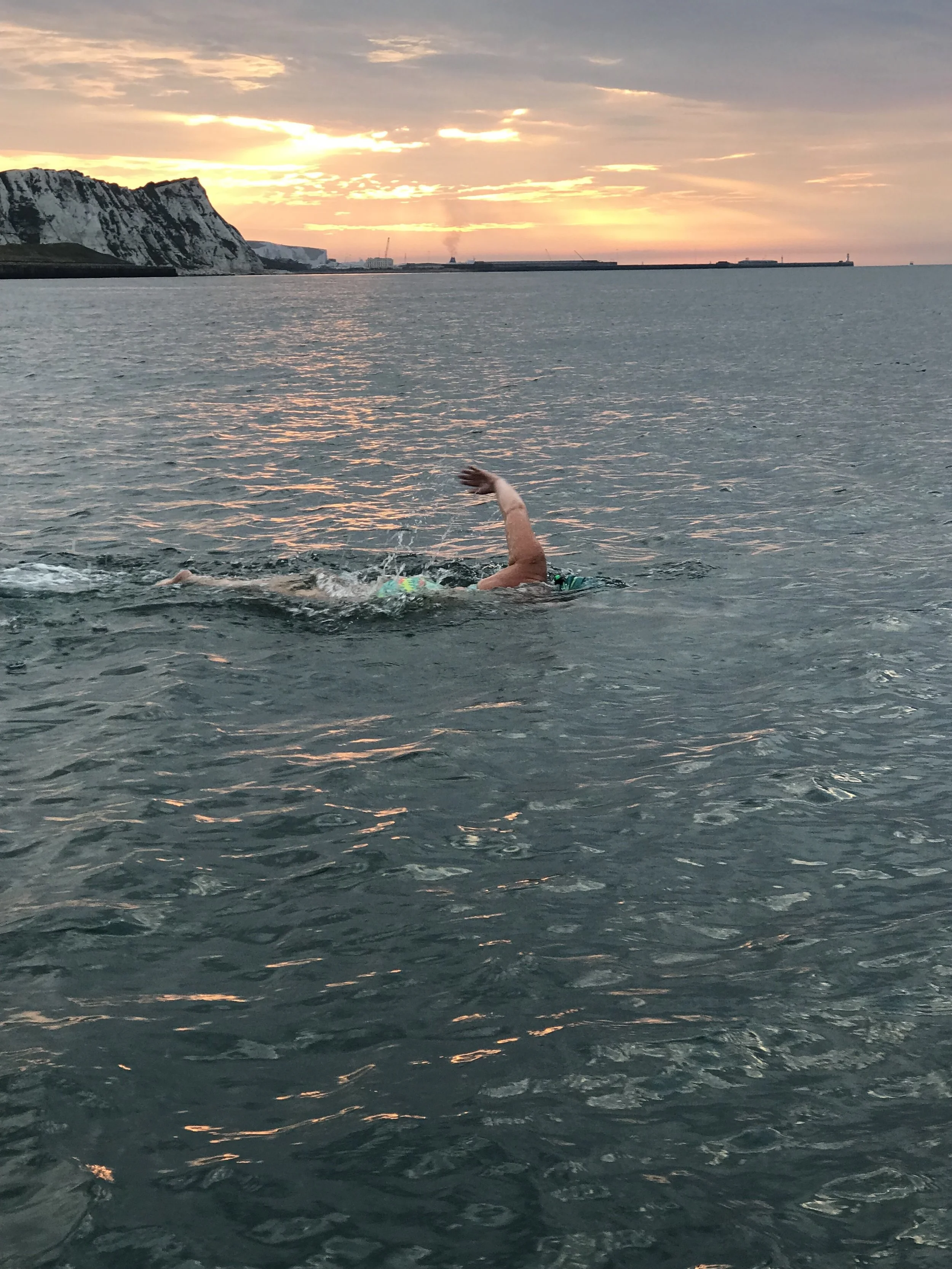Trust the process
You may be aware that I can categorise my working life into three:
My part-time corporate role
My part-time performance coaching business
My voluntary role in training aspiring swimmers
Some will struggle to see the link between the first one, my corporate career and performance coaching or training swimmers, but there is a link and let me explain why.
My corporate role
My corporate role is as ‘Global Process Owner’ for one of the accounting processes for the pharmaceutical company AstraZeneca. What the heck is that you might ask! Well, in a nutshell, I am working hard to improve these accounting processes, firstly by standardising them and then by automating them and making them as efficient as possible. Sometimes these are processes that have been done the same way for many years, but that way is no longer considered best practice and is not efficient. It may be that in different locations that the process is run in different ways. My aim is to maximise getting things right first time and minimise need manual intervention to correct errors.
Hang in there, I will show the link!
Training as a process
Typically, when we train for something, be that in our professional careers or in sports, we think about our goals in terms of either the outcome we desire or the process of getting there.
The outcome
End of 2014 EC solo
The outcome is the thing you are training for:
The exam success
The promotion
The channel swim
To achieve a particular time (speed) in your event of choice
The outcome is also the things you want to accomplish along the way:
The qualifying swim
The practice next to a boat
Swimming in the dark
The job interview
The process of revising for an exam
The outcome is the result you want, in simple terms.
The Process
The process is how you get to the outcome. It’s all the steps you take to get the outcome that you want:
Dover training in 2014
Training
Perfecting your technique
Daily routines
Revision
Nutrition
Job applications
On the job experience & training
The process is all the steps you go through on a daily basis to enable yourself to perform in your chosen field at the level necessary to get your desired outcome.
Not only do these practice steps take you closer and towards your desired outcome, when your outcome is something like a channel swim the process steps prepare you for what you will experience on your big day.
You should aim to be the master of your chosen process, to perform it to the best of your ability. You should have an outlook of excellence. An attitude of bringing the best of you to the process every day. A mindset that ensures you work or train smarter, better and more efficiently.
Focusing on the process is the way forward
Thinking about the outcome won’t necessarily ensure you achieve it. Sure, visualisation is a great approach, and alone it won’t enable you to achieve your desired outcome:
Just wanting to get that dream role won’t happen just because you ‘put it out there’
Wanting to swim the channel won’t happen if you don’t actually get into cold water and train (apart from anything else you need to complete a qualifying swim)
Becoming process based is hard for those who just love to dream but not take action or plan the steps necessary.
Being processed based means you need to minimise the daydreaming and instead focus on your task in hand for today. Maybe that’s brushing up your CV for a new job or getting the sleep you need or eating good foods to fuel your body or maybe it’s turning up in Dover to complete whatever is the training swim of the day.
So, the best way to achieve your outcome is to actually put to one side the outcome and think about that less, instead follow the process that will get you there.
I have been known to say to myself at the beginning of a big swim to ‘trust the process’ or ‘trust the training’.
Ray Gibbs, my technique coach. I spent many hours repeating drills until I created the correct muscle memory
But that’s not just a mindset for the big day or event, it should be your focus every day. Following the process isn’t necessarily the most exciting thing to do, particularly when you’re a marathon swimmer and the process involves long swims in cold water when you’d rather be at the pub with the family. But if you focus on the daily discipline of what you need to do, and do it to the best of your ability and attitude, the effort will pay off.
If you’re the sort of person that wants instant results or instant gratification, this will be a struggle. Progress is generally slow, though there can be some unexpected but welcome step improvements - maybe your stroke just clicks suddenly, or you become known as the reliable colleague that just knows how to do things right. Progress also is rarely experienced in a straight line, sometimes we go backwards as well as forwards, but keep the faith, you will get there if you follow the process.
If you think of great athletes like Michael Phelps or Usain Bolt, do you think they broke the records that they did by just turning up with a desire to be fast? No, it’s so much more than that. They would have spent hour upon hour crafting their technique, practicing repetitions thousands of times over, watching video replays and refining each time. Building the perfect muscle memory for each phase of their race so that when the big day came, the performance was pretty automatic.
Frequent visits to check progress on technique by seeing what I do on video
How else can following the right process help you:
You will have more confidence that you have prepared appropriately
You will be able to quantify your progress against where you expect to be at certain points
You can reflect on what happens along the way in training and adjust accordingly based on your performance
Focusing on the process means that there is a strong focus on the technical and performance elements of your preparation. If you’re going after a sports outcome, perhaps you will routinely have a look at your technique on video and see how it is and where you need to focus your drills over the next period and decide how much of your training needs to focus on technique vs speed work vs endurance.
Following a process can be frustrating when you don’t see the results along the way that you feel you deserve, but when you do have a breakthrough moment, you’ll know without a shadow of a doubt that all the tedious investment was worthwhile. You may even find that because of that you will start to find comfort and joy in the process itself, I have learned to love doing drill sets.
Following a process doesn’t make it easy, you still need to do the hard work, whatever that hard work may be.
If you’re the sort of person that likes to set goals around speed or performance - e.g. I want to swim at 3km per hour consistently and that’s not where you currently are, you will naturally feel ‘less than’ or not good enough and that’s not exactly an empowering place to be.
How about if you set a goal to swim the channel in less than 12 hours or faster than Joe Bloggs - all you focus on is that outcome which is a pretty stressful thing to contemplate and just thinking about it isn’t going to make it happen, you need to take the process steps that take you ever closer. Don’t get me wrong, there’s nothing wrong with having a bold ambition, but having a process-focused approach means that you are tackling your process on a daily and progressive basis. Slowly building the small wins (a qualifying swim or a big back to back training weekend) will leave you feeling successful and positive. What if you are 10 minutes slower than you want or slower than Joe Bloggs? Well if you are after breaking Trent Grimsey’s record I get that it’s disappointing, but wait a minute, you still swam the channel and that is pretty incredible - wasn’t that the real outcome you were after?
By connecting your sense of self-worth to your effort, to your process of preparation, training can become reassuring and enjoyable in its own right.
Process and motivation
The process doesn’t care if you’re motivated. I speak to people who say they just don’t have the motivation to do the boring and repetitive technique training. The trouble is they are waiting for motivation to suddenly appear. Motivation is subjective, sometimes fleeting and doesn’t always turn up when you want it. Lack of sleep can make motivation seem even more elusive.
If your outcome is to swim the channel and your process is to complete a combination of weekend Dover swims (whatever duration your told to do), pool based training for technique and speed and a bit of yoga perhaps, the process itself doesn’t care whether you’re motivated. Your process doesn’t require you to show up when you feel inspired or excited, it is to become a channel swimmer and regardless of whether you are ‘feeling it’ you need to continue to execute your planned process on a daily basis.
Taking control
If you are an aspiring channel swimmer, there is so much out of your control. The weather on the day is a classic example, the air temperature, the water temperature or whether there are jellyfish. Even in training - the 4 hour feed not being a treat you like and you really wanted cake.
When we fixate on the things that we can’t control we start to feel demotivated, helpless and frustrated.
Following a process keeps you on an even keel. It keeps attention on the things that you can control.
Using positive language
Some people have a tendency to focus on what they don’t want. I don’t want to be slower than Fred Blogs or I don’t want to feel cold this time or I don’t want to hurt my shoulder. The brain can’t handle a negative so it has to first consider the thing you don’t want before considering the thing that you do want. This can lead to stress and anxiety which actually reduces your performance.
So when you put your process together, think about what you do want and not what you don’t want.
Automation
When you have a process that you always follow, be that how you prepare before you train, how you pack your bag, your routine for going to work, things get easier. You remove the need for internal debate or conscious thinking as you just get on with the normal routine, almost automatically. It takes 7 times to make a habit, so if you need to you can ‘act as if’ until it is a habit. For example, have your chosen breakfast and drink before arriving at Dover at the same time as usual, put your kit in the same place as usual, say hello with the same cheery voice, sign in and smile saying thank you for whatever is suggested. Going on to do a successful swim becomes what you do, automatically. The process helps you start strong automatically. This can then carry over to your big day.
A few days after my unsuccessful Jersey France 2 way swim in 2018
Failure can be part of the process
An easy way to know if you are focusing too much on your outcome rather than your process is to ask yourself honestly how you reacted last time you had a bad outcome in training. Did you extrapolate that to a ridiculous level and create a pattern of bad performances or did you use it as a great learning opportunity and carry on with your non-linear process?
Mental toughness
Have you ever noticed how some people are simply unflappable, regardless of what doesn’t go to plan? For aspiring channel swimmers maybe the conditions in training are awful on the weekend when you hoped to get in a long swim, or the work colleague who remains calm despite the project going off course.
Focusing on the process means that you can block out everything that is going on around you. It helps you carry on amidst chaos or in circumstances that you would not voluntarily choose. If you can reliably do your best in tough conditions, you will have world class consistency and that is exactly what you need when it comes to the big day that you have been building up to.
Let’s use a channel swimming example. You’re 3 hours into a 7 hour training swim, your shoulders are aching, the sea is bouncy, you are not swimming at the pace you would like with your normal swim buddy leaving you behind. You remind yourself that you still have 4 hours to go - how can you possibly finish that when you feel like this now? Suddenly the desire to get out hits. The solution? Stay focused on the here and now. Break it down into the small chunks you are currently doing. Buoy to buoy. Feed to feed. The time will disappear, the conditions may improve. Those shoulders may even feel better in a little while. Perhaps you are switching energy systems - moving from glycogen to fat burning, that can be uncomfortable for a while, but the discomfort will pass. If you focus on what you are doing right now you will build this habit for the big day too. You want to have experienced this in training and know that you can and will get through any tough patch by staying focused on the process, the here and now.
Less than 3 weeks after my unsuccessful Jersey swim, I started the process for my 2018 EC solo - excited.
Speed of progress
People who simply trust the process, who understand that it’s the daily routine of showing up and focusing on the things that they can control will ultimately out perform those who get bored or frustrated or who don’t apply themselves as much when they don’t see enough improvement.
If you think you are not getting the results that you should, take a look at your process. Is there something missing? Are you really applying yourself? Is there something that needs to be refined?
Building your process
Ensure you keep reviewing and refining your process as you improve and get closer to your desired outcome
Focus on the ‘how’ and not the ‘what’. For example, if you want to be faster in the water, just wanting that outcome may cause you to change your technique and shorten your stroke, giving you the opposite of what you want. Focus on swimming well, then fast swimming will be a natural outcome. When I trained for my 2014 channel solo I completely rebuilt my stroke. I was a lot slower in the pool but I build speed over distance. I noticed how I was slower than most in the first 3-4 hours of a training session but would start to overtake people at that point. On the big day I focused purely on my technique. The second half of my swim was faster than the first half and I took over 4.5 hours off the time of my first channel swim. Of course no two days are the same, but this was an incredible outcome from simply trusting in the process.
Build the habit so that it becomes second nature to just run the process so that you can do this automatically when times get tough. That’s how winners never quit. Don’t build quitting into your process.
So, do you see? Everything that I do is about processes. Whether that’s building efficient world class finance processes with a high level of automation or helping someone build a world class process for achieving an academic, professional or sports goal in a way that means that build excellence into their routine, it’s all about process.
If you train with me in Dover and I tell you to trust the process, this is exactly what I mean. We build a set of experiences and provide consistency in process to take you towards your outcome. We’ll also throw in the unexpected which help you test that process so that if things don’t go as you hoped on the big day, you already know how to just follow the process anyway.
Just in the same way as I continue to evolve the processes that I’m responsible for at AstraZeneca, ensuring that they continue to evolve as technology develops and best practice moves on, I continue to develop the process we use in Dover to train channel swimmers - be that through tweaks to admin processes, feeding content and process, volunteer rotas, blogs, messages, the whole thing. This is not something that will ever be static. The processes will evolve based on results and science. You can trust that we have world class processes that will be refined as world class thinking evolves.
At AstraZeneca we are ‘fast followers’ in that we don’t define what world class looks at but we do aim to follow those who have defined it. With Dover I believe that in some areas we contribute to what good looks like. We have a world class process which has been proven out many times over the years and will continue to evolve.
If you want additional help in building and running your process, please get in touch.
emma@emma2france.com ~ 07702 814690










